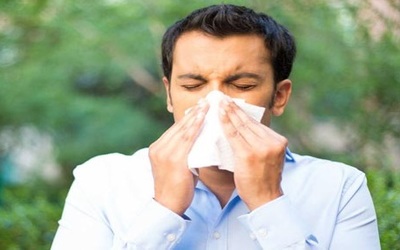Cold & Flu can get the better of us at any time of the year. These conditions affect the nose, throat, and lungs and have some similarities but a lot of differences. Let’s first look at the differences between Cold & Flu.
[the_ad id=”13371″]
A cold
Here are the characteristics of the cold:
- Starts gradually
- Fever and chills are rare
- There may be slight body ache
- A headache is rare
- Fatigue, weakness are rare
- Sneezing, stuffy nose and sore throat are common
The flu (influenza)
Here are the characteristics of the flu:
- Starts suddenly
- Fever and chills are usual; fever may be as high as 100-102 °F, sometimes higher in young children
- Body ache is more common
- A headache is more common
- Fatigue, weakness can last up to 3 weeks; extreme exhaustion may be seen at the start of the illness
- Sneezing, stuffy nose and sore throat may be seen
In general, the flu is a more potentially serious and severe condition as compared to a cold. In most cases, the cold does not result in severe health complications but this may be the case for those with influenza.
Prevention better than cure
Vaccination
Vaccines are available to prevent seasonal flu. These vaccines need to be taken every year. Talk to your doctor to learn more about this.
Lifestyle tips
According to the experts here are the best ways to lower your chances of catching a cold or a flu:
- Keep washing your hands particularly before you touch your face, eat your food; and especially after being around someone else who is ill or after coughing and sneezing
- As far as possible, do not share objects
- Avoid unnecessarily touching your nose, face, eyes
- Get enough sleep
- Do not allow yourself to get stressed
- Do not cough into your hands – use tissues for when you cough and sneeze and dispose of them safely
- Eat healthily
- Stay fit and physically active
- During flu season, stay away from crowds as much as you can help it
Complementary foods
No complementary foods can help to prevent or relieve the flu. However, here is the evidence for complementary health approaches for the colds, though you must take your doctor’s opinion into consideration before doing this:
- Ginseng may help to reduce the duration of colds
- Some Echinacea products may benefit in cases of colds
- Honey may help to reduce nighttime coughing bouts in children over the age of 1 year
- Vitamin C in a few cases may be useful; people exposed to a lot of stress may benefit from taking vitamin C
- For some, eating lozenges that contain zinc could help shorten the duration of colds
Doctor’s advice
Talk to your doctor and take the recommended medication, if needed.
Source:

